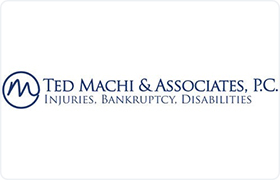Godley Bankruptcy & Debt Lawyer, Texas, page 2
Sponsored Law Firm
-
 x
x

Click For More Info:
-
Machi & Associates, P.C.
1521 North Cooper Street Suite 550 Arlington, TX 76011» view mapAccident & Injury, Bankruptcy, Social Secuirty We Fight So You Don't Have To
Our professional team of attorneys and staff provide the experience and expertise needed to effectively handle your case.
800-804-0771
Jon P. Hammond
Credit & Debt, Personal Injury, Elder Law, Family Law
Status: In Good Standing Licensed: 53 Years
Daren Richard Van Slyke
Oil & Gas, Family Law, Credit & Debt, Personal Injury
Status: In Good Standing Licensed: 17 Years
 Ted Machi Arlington, TX
Ted Machi Arlington, TX Practice AreasExpertise
Practice AreasExpertise
